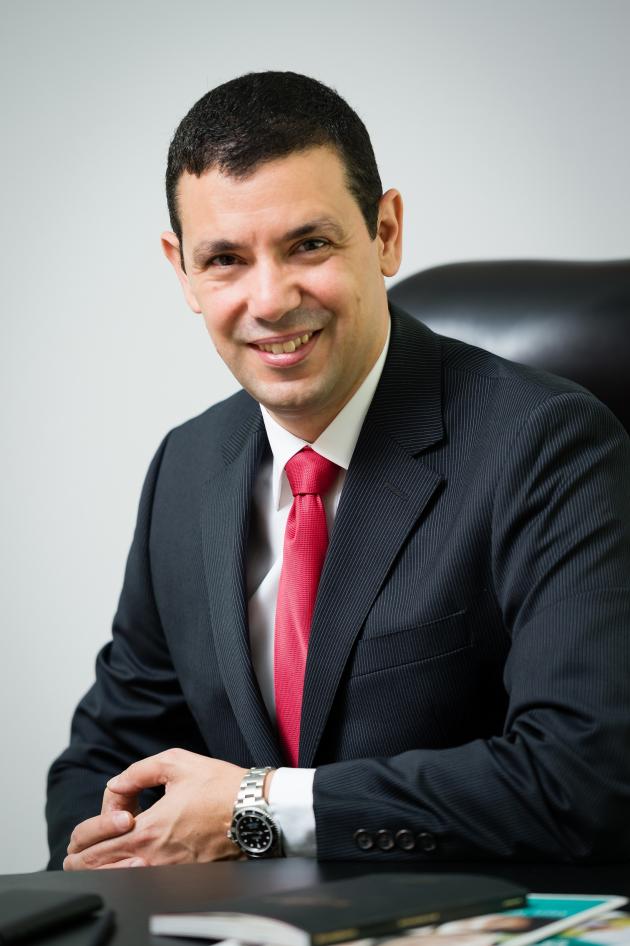There has been much gossip about reasons MSD Korea CEO Avi BenShoshan became the new chairman of the Korea Research-based Pharma Industry Association (KRPIA). Many speculate this move is to support the U.S. pharmaceutical industry’s stance in talks to revise the bilateral free trade deal between Korea and the U.S.

Korea’s new drug pricing policy is one of the key issues in discussions to amend the Korea-U.S. Free Trade Agreement. KRPIA is a group of multinational pharmaceutical firms stationed in Korea.
Industry sources attributed such speculation to BenShoshan’s short experience in Korea and his comments that “the association should pay attention to the renegotiation of the FTA” during a visit to the KRPIA before the inauguration.
On Jan. 24, BenShoshan was elected as chairman of the KRPIA, beating the most promising candidate, Pfizer Korea CEO Oh Dong-woo. BenShoshan has a two-year term from February.
Observers had expected that a new KRPIA head would be Oh, a Korean, as former chairpersons were all Koreans since 2011, such as Janssen Korea CEO Kim Oak-yeon, GSK Korea CEO Kim Jin-ho, and Pfizer Korea CEO Lee Dong-soo.
However, BenShoshan was elected as the 13th chairman, who has spent only about 18 months in Korea since becoming CEO of MSD Korea in June 2016.
BenShoshan appeared at the KRPIA’s office before taking office, asking KRPIA officials to pay keen attention to FTA renegotiation talks.
Insiders at the KRPIA said the new chairman might be focusing on bringing out what the U.S. drugmakers are asking for, ahead of the negotiations for an FTA revision.
Korea’s pharmaceutical pricing policy is the key issue in the trade deal amendment talks.
According to the Korean Embassy in Washington, U.S. Senate Finance Committee Chairman Orrin Hatch protested against the Korean government’s drug pricing procedures in a letter to the embassy in 2016.
“I believe that the agreement overall has been a success. However, the government’s decisions on pricing and reimbursement for pharmaceuticals and medical devices often do not appropriately value innovative medicines and are not made in a fair, nondiscriminatory, and transparent manner,” Hatch said in the letter.
He demanded Korea run an independent reviewing body for financial management of health insurance, saying the Ministry of Health and Welfare or the Health Insurance Review & Assessment Service were not an independent body.
“Korea still is not living up to its KORUS obligation to make available an independent review mechanism for stakeholders directly affected by pricing and reimbursement decisions,” Hatch said.
The health-welfare ministry said pharmaceutical pricing was one of the thorny issues mentioned when the U.S. Trade Representative proposed to revise the terms of the Korea-U.S. trade deal.
“Pricing of innovative global drugs is one of the four core clauses in the public health and pharmaceutical sector. The U.S. claims that the Korean government gives too much favor to local drugmakers in novel drug pricing, discriminating against imported drugs, which runs counter to the FTA compliance,” said Maeng Ho-young, commerce and FTA officer at the health and welfare ministry, in a meeting with reporters in August last year.
Responding to speculation over BenShoshan’s backing of the U.S. pharma for FTA amendment talks, KRPIA admitted that the association was involved in the trade deal revision talks.
“At the request of the U.S. Embassy, we collect our member companies’ advisory opinions and deliver them to the embassy,” KRPIA said. “Although BenShoshan is CEO of the Korean unit of the U.S.-based company, there will be no difference at KRPIA. His arrival will just make our communication better.”

